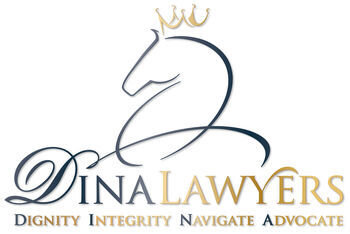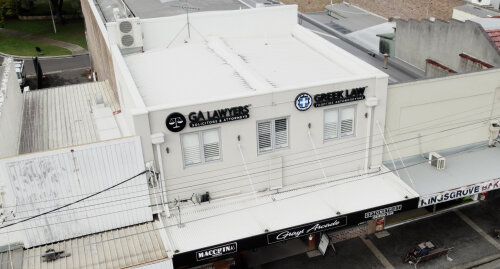Best Employment Rights Lawyers in Sydney
Share your needs with us, get contacted by law firms.
Free. Takes 2 min.
List of the best lawyers in Sydney, Australia
About Employment Rights Law in Sydney, Australia
Employment rights laws in Sydney, Australia, are designed to protect both employees and employers, ensuring fair treatment, safety, and equitable workplace practices. The Fair Work Act 2009 is the key legislation governing employment relations in Australia, establishing national minimum standards for various aspects of employment, such as pay, working hours, and leave entitlements. In addition, New South Wales (NSW), the state in which Sydney is located, also has specific employment laws that supplement federal regulations. Understanding these rights is crucial for both employees and employers to maintain a legally compliant and harmonious work environment.
Why You May Need a Lawyer
There are several instances where legal advice may be crucial regarding employment rights. These include instances of unfair dismissal, workplace discrimination, wage disputes, breaches of employment contracts, and occupational health and safety concerns. Seeking legal guidance can help you understand your rights, navigate the legal system effectively, and ensure fair treatment in resolving any employment-related issues.
Local Laws Overview
The employment rights landscape in Sydney is influenced by both federal and state laws. The Fair Work Act 2009 sets out national employment standards, while the NSW Industrial Relations Act 1996 governs state-specific issues. Key aspects of local laws relevant to employment rights include the following:
- Protection against unfair dismissal and conditions for lawful termination.
- Anti-discrimination laws prohibiting unfair treatment based on characteristics such as gender, age, race, and disability.
- Minimum wage laws ensuring fair compensation for work performed.
- Entitlements to leave, including annual leave, personal leave, and parental leave.
- Workplace safety regulations under the Work Health and Safety Act 2011 (NSW).
Frequently Asked Questions
What is considered unfair dismissal?
Unfair dismissal occurs when an employee is terminated in a harsh, unjust, or unreasonable manner. This can include termination without valid reason or failing to follow due process.
How can I resolve a workplace dispute?
Employees can attempt to resolve disputes through internal workplace grievance procedures, mediation, or by approaching the Fair Work Commission for assistance in conciliation or arbitration.
Am I entitled to redundancy pay?
Employees may be entitled to redundancy pay if their position is made redundant and they meet specific criteria under the Fair Work Act 2009, typically depending on the size of the employer and length of service.
What are my rights if I face discrimination at work?
Employees facing discrimination can file a complaint with the Australian Human Rights Commission or the Anti-Discrimination Board of NSW. Legal advice can also be sought to address and resolve the issue in court if necessary.
How much notice must an employer provide before termination?
The notice period depends on the duration of employment and conditions stipulated in the employment contract. Minimum notice periods are defined by the Fair Work Act 2009.
What should I do if I'm not being paid correctly?
First, employees should discuss the issue with their employer. If unresolved, they can seek assistance from the Fair Work Ombudsman to investigate and rectify underpayment issues.
Can my employer change my contract terms without my consent?
Employers generally cannot unilaterally change essential terms of an employment contract without the employee's consent. Such changes should be mutually agreed upon.
What is the process for claiming workers' compensation?
Employees should report workplace injuries to their employer and seek medical advice promptly. They can then lodge a workers' compensation claim with the appropriate insurer, following legal and medical advice.
How are casual workers protected under employment law?
Casual workers in Sydney are entitled to certain rights, including penalty rates, unpaid leave, and the right to request conversion to full or part-time status under specific conditions.
What role does the Fair Work Commission play?
The Fair Work Commission is Australia's national workplace relations tribunal, responsible for resolving disputes, setting national minimum wages, and reviewing conditions, among other duties.
Additional Resources
Several resources are available for individuals seeking information about employment rights in Sydney:
- The Fair Work Ombudsman: Provides guidance on employment conditions and dispute resolution.
- The Fair Work Commission: Offers assistance in industrial disputes, unfair dismissal cases, and agreement-making.
- The Anti-Discrimination Board of NSW: Handles complaints related to workplace discrimination.
- Legal Aid NSW: Offers free legal services and support for eligible individuals.
Next Steps
If you need legal assistance in employment rights, consider the following steps:
- Gather all relevant documentation concerning your employment issue.
- Contact an experienced employment lawyer or legal service in Sydney.
- Explore mediation or alternative dispute resolution options as a first step.
- If necessary, lodge formal complaints or claims with the relevant regulatory bodies.
- Stay informed about your rights and any updates in employment laws.
Seeking professional legal advice can provide clarity and support in navigating complex employment issues, ensuring your rights are protected in Sydney's dynamic workplace environment.
Lawzana helps you find the best lawyers and law firms in Sydney through a curated and pre-screened list of qualified legal professionals. Our platform offers rankings and detailed profiles of attorneys and law firms, allowing you to compare based on practice areas, including Employment Rights, experience, and client feedback.
Each profile includes a description of the firm's areas of practice, client reviews, team members and partners, year of establishment, spoken languages, office locations, contact information, social media presence, and any published articles or resources. Most firms on our platform speak English and are experienced in both local and international legal matters.
Get a quote from top-rated law firms in Sydney, Australia — quickly, securely, and without unnecessary hassle.
Disclaimer:
The information provided on this page is for general informational purposes only and does not constitute legal advice. While we strive to ensure the accuracy and relevance of the content, legal information may change over time, and interpretations of the law can vary. You should always consult with a qualified legal professional for advice specific to your situation.
We disclaim all liability for actions taken or not taken based on the content of this page. If you believe any information is incorrect or outdated, please contact us, and we will review and update it where appropriate.

















